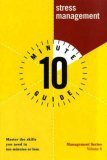Life Balance
The importance of achieving life balance for overall health and well-being is becoming increasingly more well-regarded, dimming the previous strong focus on the role of diet and exercise on your health.
And if you’ve read the FREE Life Planning Program available in the ToolBOX, you’ll be aware of the section on how to determine what you really want. Use this as a tool for you to identify what your balance should be – and use this as the basis for setting your life goals.
Achieving life balance
is about getting the right mix of career, family time, rest and relaxation. Too often the pressures of managing at career and making money dominate our lives – so take some time out and think about how you can achieve your own personal life balance.
The program has been designed, researched and tested in collaboration with stress experts at University College London.
Rest and Relaxation
It is important that you get enough rest and relaxation to give your body time to repair itself and give your mind time to de-clutter and unwind. This is a part of achieving life balance.
Rest and relaxation isn’t just about lazing about on the beach – of, course that sounds pretty good too! It’s about taking “Me Time” out of your day and doing something for you and your life balance – a favourite hobby, reading a good book, taking a trip to the country, going for a bike ride – whatever works for your life balance.
The “Personal Goals” tab on the NavBar covers this topic in more detail, but the important thing is to find something that works for you.
Sleep
We all know that if we don’t get enough sleep, we get snappy and irritable and perhaps don’t perform as well the next day, but sleep does more than that.
Sleep allows our body time to repair or replace dead cells and injuries, and time to maintain our muscles and vital organs. And chemicals vital to the immune system are released when we sleep, so sleep is important for maintaining our immune systems and general health.
It also gives our brain a break and allows it to organise itself – that’s why if you go to bed with a problem on your mind, you’ll often wake up feeling better and more grounded. It’s the old adage of “to sleep on it”. So sleep is vital in healing stress and mental trauma.
Sleep is even more important for children as growth hormones are released when they sleep. Kids you don’t get enough sleep may end up with stunted growth or development.
Obviously the odd sleepless night here or there won’t affect your long term health, but if sleep deprivation is a common event, your health – not to mention your sanity – will being to suffer.
And too much sleep isn’t good for you either – too much sleep will leave you feeling sluggish and tired.
So how much sleep do you need? The amount of sleep we all need differs from person to person, but is typically 7 to 9 good quality hours every night – and this decreases as you get older. Obviously if you have a disturbed night from newborn babies or other disturbance, you’ll need longer to get the quality of sleep you need.
Tips for getting a good nights sleep for life balance include:
- Exercise – exercise tires your body giving it the signal to go to sleep to repair itself. But don’t exercise immediately before going to bed as your metabolism will still be pumping. Leave at least 2 hours between exercise and bedtime.
- Drink enough water during the day – dehydration can lead to sleepless. And a cup of hot milk before going to bed has a natural sleepy effect.
- Don’t consume stimulants like caffeine or cigarettes within 4 hours of going to sleep.
- Don’t drink a lot of alcohol within 2 hours of going to sleep – it impairs the brains ability to organise itself and disrupts sleep patterns.
- Stick to a regular bedtime pattern – go to bed and get up in the morning at more or less the same time, including weekends. Your body will get used to this pattern and get in sync with it.
- Wind down before going to bed – read a book, have a relaxing bath, listen to some soothing music. Avoid TV as it is more of a mental stimulant and definitely don’t have a TV in your bedroom.
- Some essential oils like lavender have a sleepy effect – you can apply this to your skin, in your bathwater or in an oil burner. Note though that lavender fragrance doesn’t work – it’s the oil itself that does the trick.
There are many other relaxation techniques such as meditation, visualisation, progressive muscle relaxation and self-hypnosis that can help get you off to sleep if the above techniques don’t work. Avoid long term use of sleeping tablets as your body will become dependent on them.
But if you are having prolonged problems getting to sleep or staying asleep, or if you have a snoring problem, seek medical advice on how you can achieve better sleep.
Stress and Mental Health
Stress in some form is a natural part of modern life, whether it be the rush of getting the kids ready for school, a tight deadline at work, sitting in a traffic jam or stress resulting from a traumatic event.
And stress isn’t always a bad thing.
Studies of workplaces and schools have shown that there is an optimal stress level that gives optimal performance – below this stress level, people don’t feel “pressured’’ and therefore become lazy. However above that level of stress, performance can decline through flustered employees making mistakes and inability to make decisions.
|
Stress is an inevitable part of life. There are many books out there that seek to eliminate stress, but what about putting stress to work instead? Stress That Motivates introduces readers to this revolutionary way of thinking through 'self-talk secrets' and insights that will not only help them recognize their stress triggers but will motivate them to consciously change the way they think and react to stress. |
So the key is to know when we are under too much stress and learn how to manage it. Some suggestions include:
- Be planned and organised to minimise unnecessary stress – by being organised you’ll minimise the unexpected interruptions that add to stress levels and you can mentally prepare yourself your events that you know will be stressful.
- Know when you are stressed - keep a stress diary if you’re concerned about your long term stress levels, noting the date, event and how stressed you feel on a scale from 1 to 10.
Analyse this data to identify if there is a particular source of your stress and then see what you can do to minimise it.
- Visualise – when you’re feeling particularly stressed, take time out and visualise something special to you. It might be a tranquil natural landscape, or an image of your happy smiling kids. Focus on this image until you start to feel calmer.
- Deep breathing – sit down and take a deep breath in for the count of 10 and then out for the count of 10. Do this several times and you’ll feel much calmer.
- Exercise – there’s nothing like a good job to de-stress your body and mind.
- Wind-down – know what relaxation techniques you find effective, whether it be massage, yoga or just socialising with your family and friends. And sleep on it – you’ll feel much better in the morning.
If your stress is making you overly anxious or giving you panic attacks, seek medical advice on how you can manage your particular stress.
Stress resulting from a traumatic event is a different kettle of fish, and needs to be treated by professionals. Post-traumatic stress can be very debilitating and can manifest itself in a number of ways, so if you suspect someone is suffering from this type of stress, suggest they seek medical advice.
Your brain will heal from traumatic events and you will feel better down the track – but it can take some effort and a lot of pain to get there. The important thing is to give yourself time to heal – seek advice, and DON’T DRINK ALCOHOL (it interferes with the brains ability to heal itself, and you’ll never get over it if you turn to the bottle).
Stress itself isn’t a mental health issue, but mental health is also something we need to take seriously. The number of cases of depression is rapidly increasing – I think all of us know someone who has medical depression [my father for one] - so it’s not an isolated issue.
While people are becoming more aware of depression and other mental illnesses, there is still a somewhat ‘taboo’ approach to the topic – and there shouldn’t be. In a lot of cases, mental illnesses including depression are due to chemical or hormonal imbalances in the brain, and aren’t due to the person being ‘soft’.
Again, the important thing is to get professional help. There are many medications that can successfully deal with clinical depression and other mental illnesses.
10 Minute Guide to Stress Management
|
Stress is an inevitable part of life. This book offers simple, practical help for busy people who need fast results. Through goal-oriented, 10-minute lessons, you learn all the skills you need to live and work stress-free! Search Amazon at the bottom of this page for other books in the ’10 Minute’ series. |
Alternative therapies
There are lots of alternative therapies available for relaxation, stress relief and life balance. So if you’re looking for a different way to unwind, try one of these:
- Meditational therapies – such as yoga and Thi Chi can be relaxing and channel the mind.
- Massage – there are many different types of massage available, and are a great way to release tension from your muscles, stimulate circulation and just relax.
- Aromatherapy – the natural volatile chemicals found in some essential oils like lavender have a calming effect on the body, and can be a great way to supplement other relaxation techniques – or on their own. If you want to try aromatherapy, only buy genuine essential oils, not fragrant oils. Only the essential oils contain the volatile chemicals that have the desired effect.
- Harnessing energy – many people believe in the benefits of energy channelled through certain crystals. Crystals can be used to channel positive energy, health energy or even luck energy.
- Self-hypnosis – a form of affirmation, self-hypnosis is a technique for programming the brain for a variety of purposes. Overcoming phobias, managing addictions and building a positive attitude – all have self-hypnosis programs available for achieving life balance.
And some people even use clairvoyancy to help them achieve life balance – not because they believe in the predictions, but as a tool for questioning where they are in their life.
Alternative therapies may or may not be your thing for helping with your goal setting or life balance – but give them ago if you’re looking for some inspiration.
Achieving life balance is about getting the right mix of career, family time, rest and relaxation.
Too often the pressures of managing at career and making money dominate our lives – so take some time out and think about how you can achieve your own personal life balance.
How to Make Every Day A Terrific Day - Proven Life Skills for Creating Balance, Happiness, and a Positive Mental Attitude
|
You'll learn the basic habit patterns of winners, techniques for overcoming worry, how to help others be more positive, and dozens of ideas to make sure that every day is a terrific day. Having gone from farm boy to self-made millionaire to US Congressman in two states before he was 35 years old, Ed Foreman now shares insights from his real world experiences and life lessons with people around the world. |




